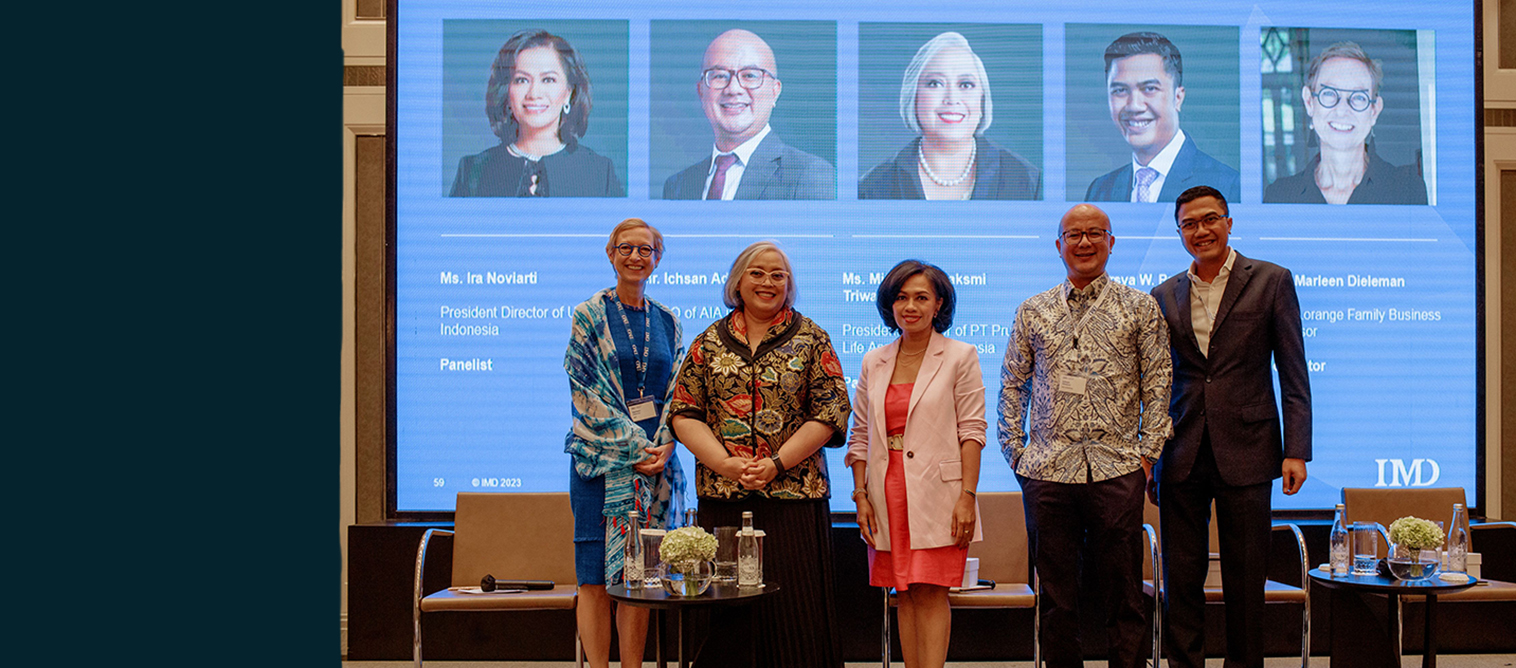
The pace of digital transformation is poised to accelerate. As businesses and the economy continue to expand, executives in Indonesia need to harness the potential of digital technologies, data insights, and artificial intelligence (AI). Through this relentless quest, Indonesian businesses have witnessed remarkable enhancements in efficiency, productivity, and customer experience.
The spotlight then falls on Bank Rakyat Indonesia (BRI), one of the country’s foremost financial institutions. BRI has revolutionized and expedited the credit underwriting process through the groundbreaking BRISpot system. This innovative leap has resulted in a substantial reduction in the disbursal time from 20 days to just two hours.
Further, technological advancement has empowered Unilever Indonesia to streamline its operational processes. Through end-to-end integration, it has harmonized all systems, creating a seamless flow from inception to fruition while bridging communication gaps between systems. The transformation has enabled the company to process millions of transaction orders concurrently, compressing the typical order-to-delivery timeline from two to four weeks into a mere day.
A similar narrative unfolds at AIA, where the adoption of digital technology has heralded a streamlined business process from product offerings and client risk assessments to product recommendations and pricing. A process that once spanned more than a week now proceeds seamlessly and efficiently, thanks to the integration of digital technologies.
However, the path to digital transformation expands beyond technological advances and IT infrastructure. It also demands a fundamental shift in behaviors and mindsets and requires the quality of leadership that comprehends not just the current technological landscape but envisions the future, known as ambidextrous leadership.
Navigating complexity: The role of leadership
Digital transformation is often a complex orchestration that requires synchronized efforts from all facets of an organization. Therefore, leaders must set forth a clear vision and mission to succeed and build a coherent roadmap that aligns with organizational goals before embarking on digital transformation.
Leaders must delineate a strategy for achieving these objectives, set clear priorities, and marshal efforts to attain and avert the temptation to pursue the target simultaneously. Michellina Laksmi Triwardhany, President Director of Prudential Indonesia, aptly noted, “The most challenging part is at the beginning.”
Harsya Prasetyo, SEVP Change Management and Transformation at Bank Rakyat Indonesia (BRI), stressed the significance of a clearly articulated vision and mission in guiding leaders’ decision-making processes. It is imperative to decipher which course of action is most suitable and what constitutes a meaningful Minimum Viable Product (MVP) that holds relevance for the workforce and clientele.
Ichsan Adiwijaya, Chief Human Resources Officer of AIA Indonesia, emphasized that the success of transformation depends on collective teamwork rather than individual efforts.
“When addressing corporate culture and atmosphere, unity is key.”
– Ichsan Adiwijaya
Leaders must ensure the creation of an environment, culture, and platform that fosters the development of the right talent.
Additionally, Triwardhany highlighted the importance of assembling a transformation team comprising individuals with complementary skills. In her view, the team should encompass strategic thinkers and execution experts, recognizing that executives with strong operational skills must be ready to accept and adopt strategic insights.
She also brings about the needs of ambidextrous leaders who understand the importance of maintaining the status quo while simultaneously preparing the organization for a transformative future. Meticulous planning, particularly when launching experimental initiatives, must become an integral facet of leadership. Triwardhany underscored the need for careful deliberation when launching new projects, as experimental endeavors carry an inherent risk of failure.
Triwardhany advised, “Determine how much of the company’s resources can be risked on exploratory projects without causing undue financial hardship. Allow for both success and failure as you test out new ideas. Yet self-control is required to make the investment in the endeavor worthwhile.”
Readiness: The human element
The success of digital transformation initiatives is intrinsically tied to the readiness of users, partners, and retailers. While the organization may be prepared for change, as the panelists agreed, third parties do not always share this readiness. The advent of digitization presents the potential to advance a company’s operations, yet Ira Noviarti, President Director of Unilever Indonesia, acknowledges the ongoing challenges in shifting the digital mindset and behavior into practical application.
Unilever, for instance, is striving to introduce new applications aimed at streamlining the purchasing processes of its merchant partners. The objective is to eliminate the need for in-person meetings between store owners and Unilever representatives. However, despite the availability of apps that could expedite the process, many prefer to continue with manual interactions.
Therefore, Noviarti emphasized the significance of influencing mindsets and behaviors to foster active participation in the digitalization process. Unilever then provides comprehensive training designed to instigate a shift in the mentality and behavior of merchant partners. “We describe the advantages for them, so they are aware that this change works to their benefit. When people understand the advantages, it is easier for them to modify their behavior through training, which cannot occur overnight,” Noviarti concluded.
Adiwijaya wholeheartedly agreed. He underscored the necessity of altering attitudes and behaviors, particularly on the part of AIA’s business partners. Accurate analysis results in an enhanced customer experience and bolsters sales if implemented effectively. In some instances, agents have witnessed increased success, closing more cases on a larger scale.
Meanwhile, Prasetyo emphasized how digitalization has alleviated the burden on bankers but poses challenges in educating customers. Even though BRI’s digital services rank among the industry’s finest, numerous customers still prefer in-branch visits for even simple issues, such as password retrieval. Prasetyo humorously points out that their customer service representatives and tellers have assumed a new role, that of “Forgotten Password Manager.”
In conclusion, digital transformation is an ongoing journey, demanding that leaders foster a culture of perpetual improvement across people, processes, and technology. The role of leaders in digital transformation extends to defining the vision, articulating the strategy, and inspiring the organization to embrace change. They must nurture a culture of innovation, experimentation, and continuous learning.


